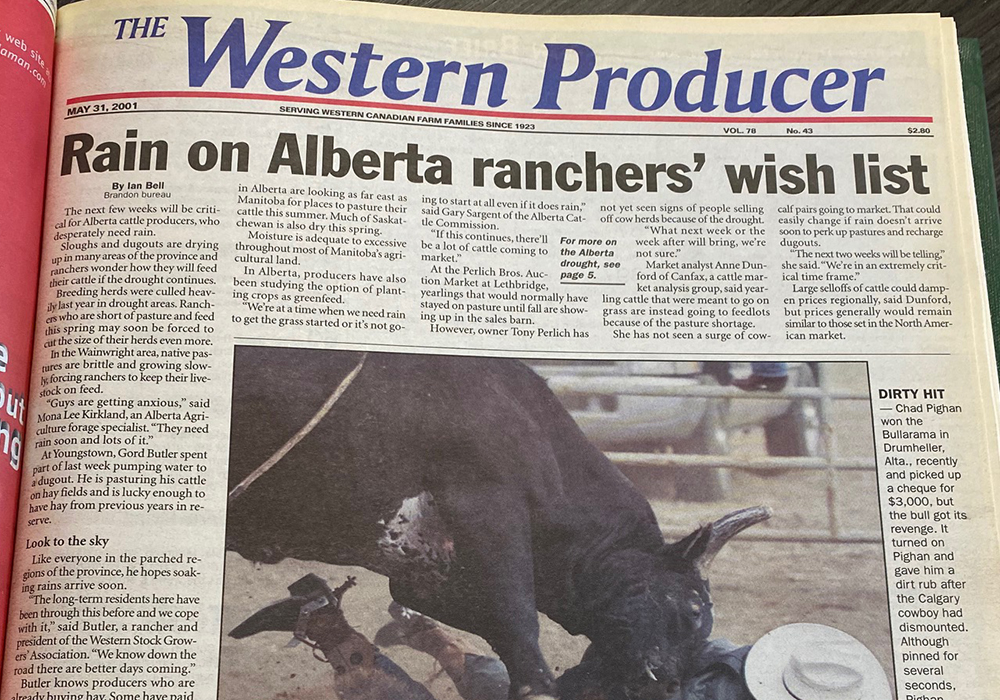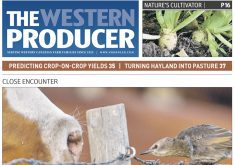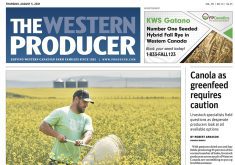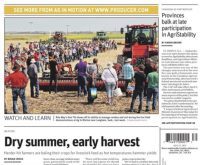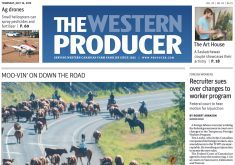For the next year, this column will mark The Western Producer’s 100th anniversary by taking a deep dive every week into a past issue of the paper.
Last year’s Alberta drought coverage contained many comparisons to the devastation of 2001.
In the May 31, 2001, issue, we get to see the beginnings of that catastrophe.
Read Also

Higher farmland taxes for investors could solve two problems
The highest education and health care land tax would be for landlords, including investment companies, with no family ties to the land.
The writer of a front page story wrote that “the next few weeks will be critical for Alberta cattle producers, who desperately need rain,” while Alberta Agriculture forage specialist Mona Lee Kirkland said: “Guys are getting anxious. They need rain soon, and lots of it.”
There was a story about producers near Hanna dealing with a fine layer of salt that was covering the countryside. A good rain was needed to clean the grass, which was becoming unpalatable.
Meanwhile, three of four community pastures in the area had to delay cattle introduction because of a lack of water.
Provincial agriculture minister Shirley McClellan offered drought relief, but there were few details.
Unbeknownst to all involved, things weren’t going to get better soon.
The other front page story in this issue was about the sentencing of Percy Schmeiser of Bruno, Sask. He had already been found guilty of patent infringement for growing Roundup Ready canola without paying for it.
Now he had been ordered to pay Monsanto $19,832 plus interest and legal costs, which had yet to be determined.
The judge also forbade him from planting, harvesting or marketing Roundup Ready canola in the future.
Schmeiser went on to launch and lose many appeals but remains a darling of the anti-GMO set.
A few years ago a movie was made about his fight with Monsanto, called simply, Percy, with Hollywood actor Christopher Walken playing the leading role.
And in the ongoing saga that is the future of the Port of Churchill, then-owner Omnitrax had announced that it was planning experimental shipments of lentils and edible peas through the port that summer.
Thirteen years later, and efforts continue to improve the viability of this northern transportation option.

